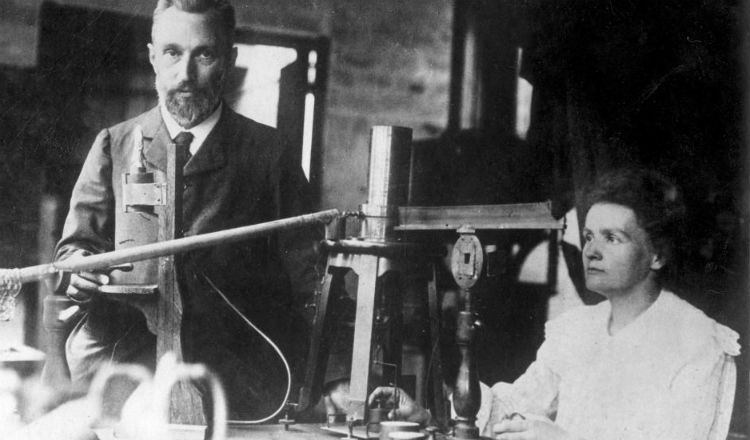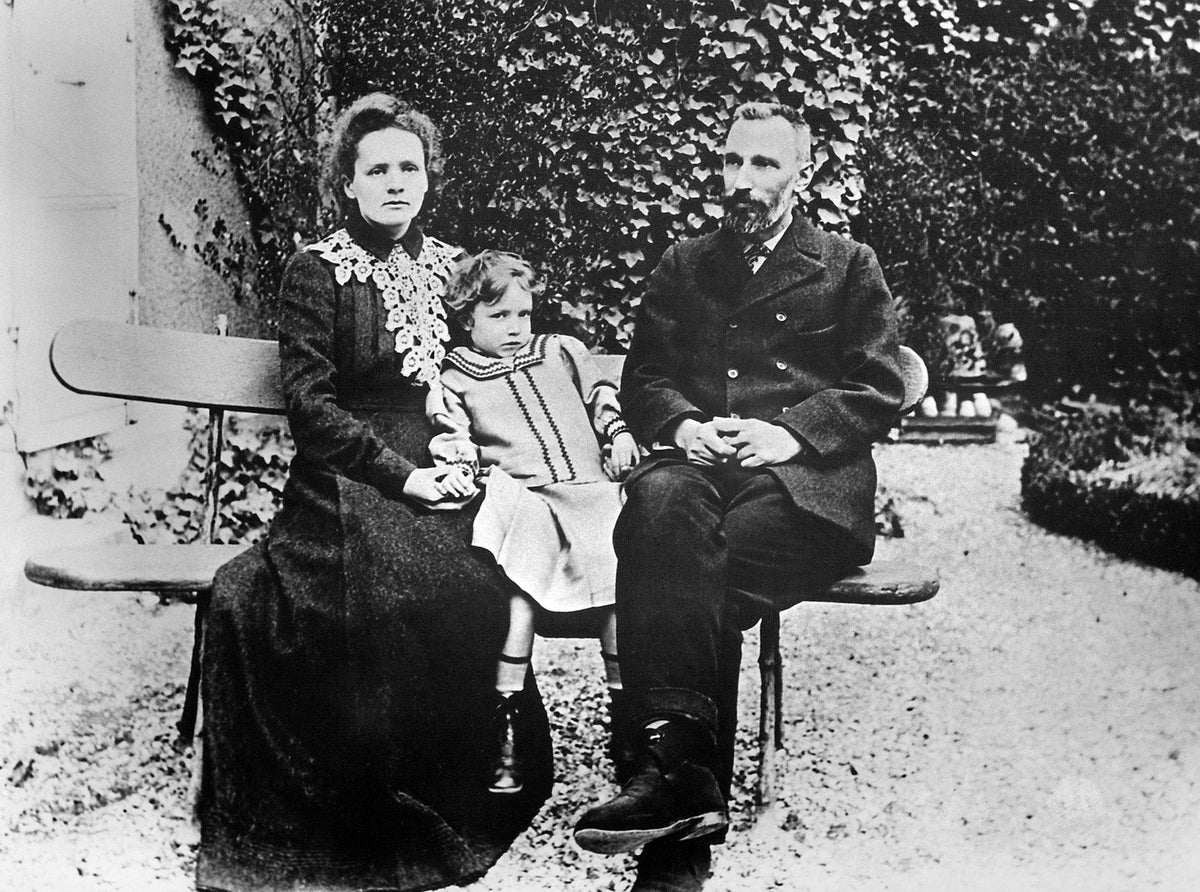The Revolutionary Contributions of Marie Curie to Science
Marie Curie, the pioneering physicist and chemist, is renowned for her groundbreaking discoveries in the field of radioactivity. Born Maria Skłodowska on November 7, 1867, in Warsaw, Poland, she defied the societal norms of her time to become one of the most celebrated scientists in history. Through her groundbreaking research and relentless pursuit of knowledge, Curie revolutionized our understanding of the fundamental properties of matter and paved the way for future scientific advancements. Curie's passion for science was evident from an early age. Despite facing numerous obstacles, including gender discrimination and financial hardship, she pursued higher education at the University of Paris. There, she met her future husband, Pierre Curie, with whom she would form a scientific partnership that would change the course of history.
Curie's passion for science was evident from an early age. Despite facing numerous obstacles, including gender discrimination and financial hardship, she pursued higher education at the University of Paris. There, she met her future husband, Pierre Curie, with whom she would form a scientific partnership that would change the course of history.
In 1898, Marie and Pierre Curie made a groundbreaking discovery that would earn them worldwide acclaim: the existence of the elements polonium and radium. Through their meticulous experiments, they demonstrated that certain elements emitted radiation spontaneously—a phenomenon they termed "radioactivity." This discovery challenged established scientific beliefs and laid the foundation for the field of nuclear physics. Marie Curie's tireless dedication to her research was matched only by her unwavering commitment to education and scientific progress. In 1903, she became the first woman to be awarded a Nobel Prize, sharing the prestigious honor in Physics with Pierre Curie and Henri Becquerel for their groundbreaking work on radioactivity. Just a few years later, she made history once again by becoming the first woman to receive a Nobel Prize in Chemistry, awarded in 1911 for her discovery of radium and polonium.
Marie Curie's tireless dedication to her research was matched only by her unwavering commitment to education and scientific progress. In 1903, she became the first woman to be awarded a Nobel Prize, sharing the prestigious honor in Physics with Pierre Curie and Henri Becquerel for their groundbreaking work on radioactivity. Just a few years later, she made history once again by becoming the first woman to receive a Nobel Prize in Chemistry, awarded in 1911 for her discovery of radium and polonium. Curie's contributions to science extended beyond her own research. She played a crucial role in the development of X-ray technology during World War I, using her expertise to train medical personnel and provide life-saving medical imaging for wounded soldiers. Her selfless dedication to serving others during times of crisis exemplified her humanitarian spirit and commitment to using science for the betterment of humanity.
Curie's contributions to science extended beyond her own research. She played a crucial role in the development of X-ray technology during World War I, using her expertise to train medical personnel and provide life-saving medical imaging for wounded soldiers. Her selfless dedication to serving others during times of crisis exemplified her humanitarian spirit and commitment to using science for the betterment of humanity.
Despite her many achievements, Curie faced significant challenges throughout her career, including discrimination and prejudice due to her gender. However, she refused to be deterred by these obstacles, persevering in her pursuit of scientific knowledge with unwavering determination and resilience.
Tragically, Marie Curie's groundbreaking research ultimately cost her life. Her prolonged exposure to radiation during her experiments led to serious health problems, including leukemia, which ultimately claimed her life on July 4, 1934. However, her legacy lived on, inspiring future generations of scientists to continue pushing the boundaries of knowledge and exploring the mysteries of the universe. Marie Curie's contributions to science and humanity are immeasurable. Her pioneering research laid the groundwork for countless scientific advancements, from the development of nuclear energy to the treatment of cancer. Moreover, her trailblazing achievements shattered gender barriers and paved the way for future generations of women in STEM fields.
Marie Curie's contributions to science and humanity are immeasurable. Her pioneering research laid the groundwork for countless scientific advancements, from the development of nuclear energy to the treatment of cancer. Moreover, her trailblazing achievements shattered gender barriers and paved the way for future generations of women in STEM fields.
In recognition of her extraordinary legacy, Marie Curie's name lives on as a symbol of scientific excellence, perseverance, and empowerment. Her life story serves as a powerful reminder of the transformative power of curiosity, dedication, and courage in the pursuit of knowledge. As we celebrate her remarkable achievements, we honor her indomitable spirit and the enduring impact of her scientific discoveries on the world.
Marie Curie's influence transcends the realm of science; she is also revered as a symbol of empowerment and inspiration for women around the world. At a time when women were often marginalized in academia and professional fields, Curie's groundbreaking achievements shattered stereotypes and paved the way for future generations of female scientists.
Throughout her career, Curie faced immense challenges and obstacles due to her gender. She encountered discrimination and prejudice from male colleagues who doubted her abilities and questioned her place in the scientific community. However, she refused to be deterred by these barriers, remaining steadfast in her pursuit of knowledge and advancement.
Curie's perseverance and resilience in the face of adversity serve as a powerful example for women everywhere. Her unwavering commitment to her research and her refusal to compromise her principles inspired countless women to pursue careers in science, technology, engineering, and mathematics (STEM) fields, despite the challenges they may face.:max_bytes(150000):strip_icc()/Marie_Curie_in_her_laboratory1-747fa14d46504cadb46ae0f4c28a800b.jpg) Moreover, Curie's legacy has sparked important conversations about gender equality and representation in STEM disciplines. Her achievements have helped to debunk the myth that women are less capable or less deserving of success in scientific fields, challenging societal norms and advocating for greater inclusivity and diversity in the sciences.
Moreover, Curie's legacy has sparked important conversations about gender equality and representation in STEM disciplines. Her achievements have helped to debunk the myth that women are less capable or less deserving of success in scientific fields, challenging societal norms and advocating for greater inclusivity and diversity in the sciences.
In addition to her scientific accomplishments, Curie's humanitarian efforts and dedication to public service further underscore her status as a role model and trailblazer for women. She recognized the potential of her discoveries to benefit society and worked tirelessly to apply her research to practical applications, particularly in the field of medicine. Curie's contributions to the development of X-ray technology during World War I saved countless lives and revolutionized the practice of medicine. Her efforts to provide medical imaging for wounded soldiers on the front lines demonstrated her unwavering commitment to using science for the betterment of humanity, regardless of the personal risks involved.
Curie's contributions to the development of X-ray technology during World War I saved countless lives and revolutionized the practice of medicine. Her efforts to provide medical imaging for wounded soldiers on the front lines demonstrated her unwavering commitment to using science for the betterment of humanity, regardless of the personal risks involved.
As we reflect on Marie Curie's remarkable life and legacy, we are reminded of the importance of perseverance, passion, and resilience in the face of adversity. Her groundbreaking achievements continue to inspire generations of scientists, innovators, and changemakers around the world, proving that with determination and dedication, anything is possible.
In honoring Marie Curie's memory, we also acknowledge the ongoing work to promote gender equality and empower women in STEM fields. By celebrating the achievements of trailblazers like Curie and advocating for greater representation and inclusivity, we can continue to build a more equitable and inclusive world where all individuals have the opportunity to pursue their passions and realize their full potential.

































